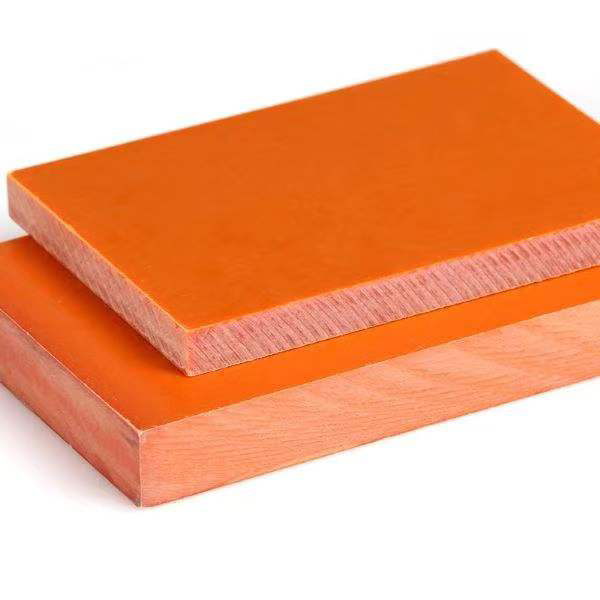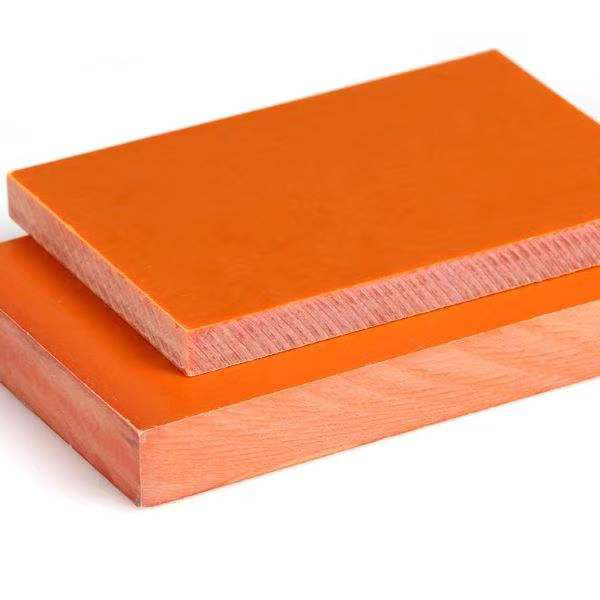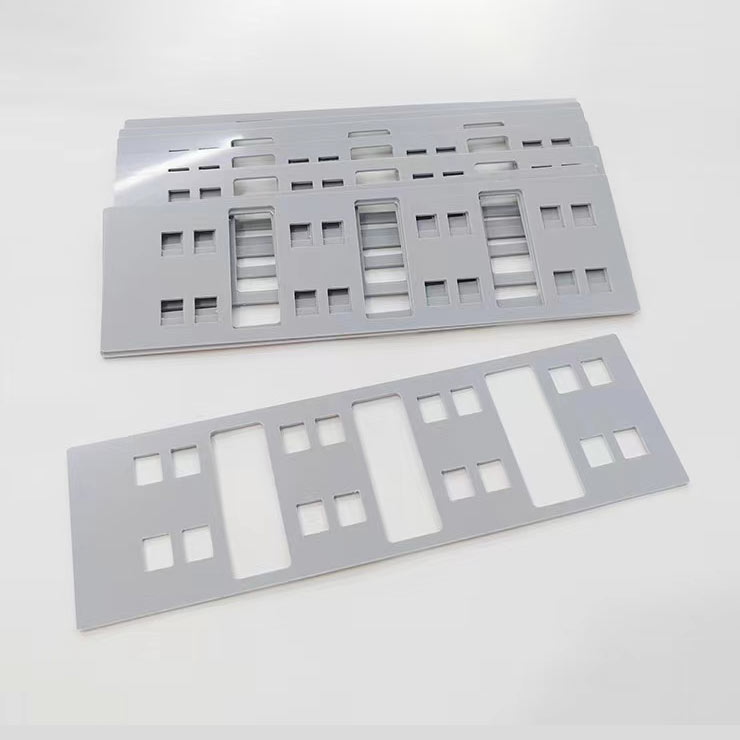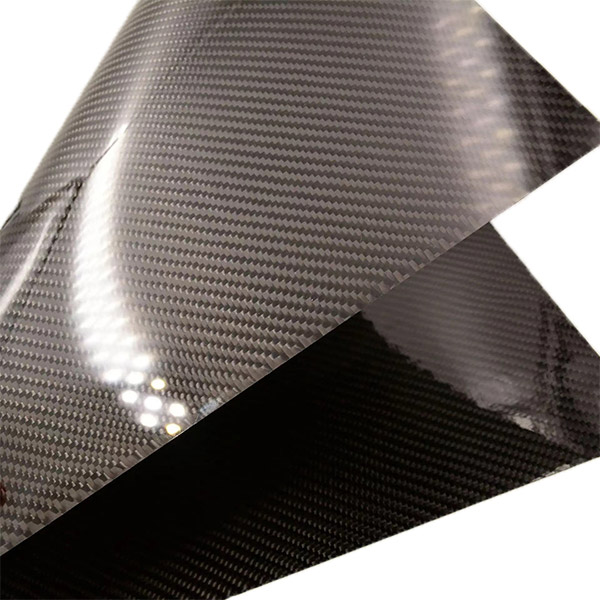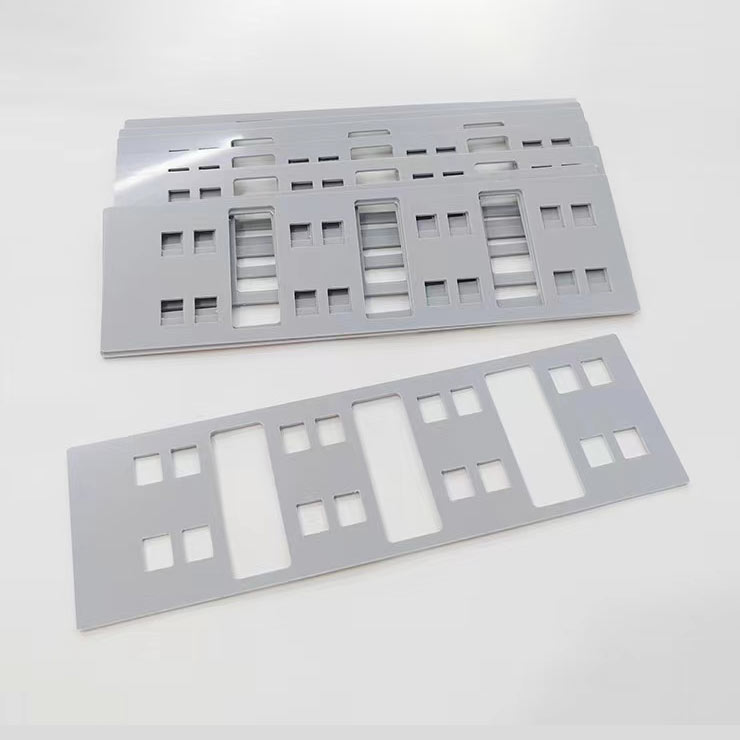Smc carbonized insulation board molding compound
Please click the button below to contact us.
Introduction:SMC, or Sheet Molding Compound, is a composite material comprising long carbon or glass fibers dispersed in a resin bath of vinyl ester, polyester, or epoxy. This combination results in a robust final product known for its strength. Typically sold in rolls, SMC can be cut into smaller pieces called "charges" for various applications. Production involves integrating the fibers and resin by applying resin paste to a film, adding cut fibers, and compressing the mixture between two films. After storage to achieve the desired texture, compression molding applies heat and pressure to cure the SMC, yielding the finished product.
Product Description
SMC Insulation Fireproof Composite is a high-quality material that is specifically designed to provide exceptional insulation and fireproofing properties for a wide range of applications. SMC stands for Sheet Molding Compound, which is a type of composite material that is made by combining thermosetting resin with glass fiber reinforcement.
One of the key advantages of SMC Insulation Fireproof Composite is its excellent insulation properties. The material is able to effectively block the transfer of heat, making it ideal for use in applications where thermal insulation is critical. This can help to reduce energy consumption and improve overall energy efficiency.
In addition to its insulation properties, SMC Insulation Fireproof Composite also offers excellent fire resistance. The material is able to withstand high temperatures without burning or releasing toxic fumes, making it a safe choice for applications where fire safety is a priority. This can help to protect people and property in the event of a fire.
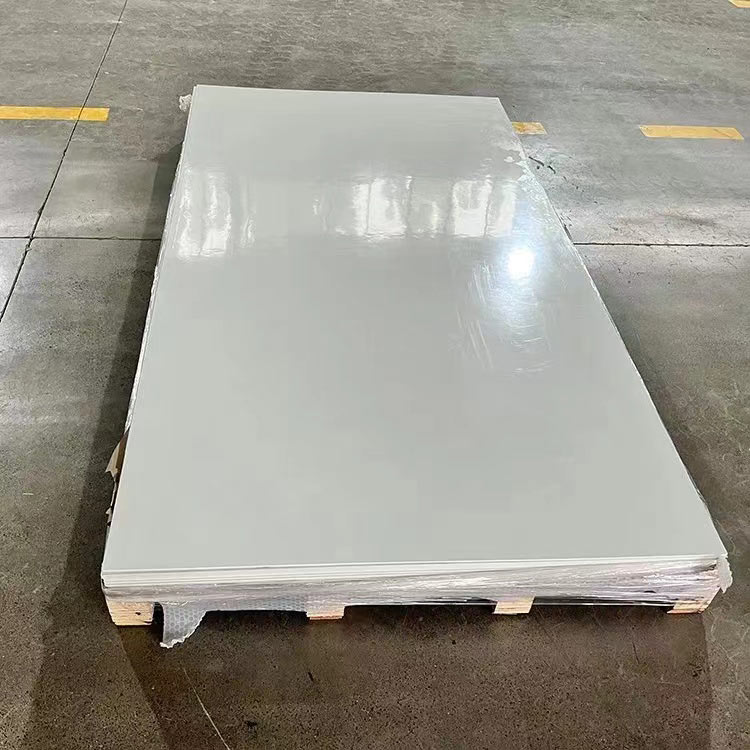
SMC Sheet Molding Compound Parameters:
| Indicator name | unit | Index value | ||
| 4341 SMC-1 | 4343 SMC-2 | 4331 SMC-3 | ||
| Density | g/cm3 | 1.75~1.95 | ||
| water absorbency | mg | ≤20 | ||
| Molding Shrinkage | % | ≤0.15 | ≤0.30 | |
| Heat distortion temperature (method A) | ℃ | ≥240 | ≥220 | |
| Impact strength (simple bracket, no notch) | KJ/m2 | 290 | 260 | 245 |
| Bending strength | MPa | 2170 | ≥150 | ≥135 |
| Insulation resistance: normal | Q | ≥1.0×1013 | 1.0×1012 | |
| After soaking in water for 24 hours | ≥1.0×1012 | |||
| Electrical strength (in 90°C transformer oil) | MV/m | ≥12.0 | ≥10.0 | |
| Dielectric loss factor (1MHz) | S0.015 | |||
| Relative dielectric constant (1MHz) | ≤4.8 | |||
| Arc resistant | S | 2180 | ≥150 | |
| Tracking resistance index (PTl) | V | 2600 | ||
| Flammability | level | FVO | ||
| Long term heat resistance temperature index | 155 | 130 | ||
SMC Sheet Molding Compound Features:
- SMC Fireproof Composite Factory High Strength: SMC insulation boards have excellent mechanical properties such as tensile strength, bending strength, impact strength, etc., which enable them to withstand various complex working environments and external forces.
- High insulation performance: Due to the excellent insulation properties of unsaturated polyester resin and glass fiber, SMC insulation board has high electrical resistivity and low dielectric constant, making it an ideal insulation material for electrical equipment.
- Corrosion resistance: SMC insulation board can resist the corrosion of chemical substances such as acid, alkali, salt, etc., and maintain stable performance for a long time.
- Flame retardancy: SMC insulation board has good flame retardancy, which can maintain structural integrity at high temperatures and reduce the risk of fire.
- Dimensional stability: SMC insulation board can form a uniform structure during the molding process, with low water absorption and warpage, ensuring the dimensional stability of the product.
- Lightweight: SMC insulation board has the characteristic of lightweight, reducing the weight of the product and improving the transportation and installation efficiency of the product.
- Easy to process: SMC insulation board has good formability and can be designed, processed, and molded according to requirements to meet the needs of various fields.
SMC Sheet Molding Compound Application:
- Power industry: SMC insulation board is widely used in the power industry, mainly for insulation and support of high-voltage switchgear, transformers, transformers, bus ducts and other equipment.
- Automotive industry: In the automotive industry, SMC insulation board is used to manufacture components such as car bodies, front and rear bumpers, instrument panels, etc. Its lightweight, high-strength, and corrosion-resistant characteristics improve the overall performance of cars.
- Construction industry: SMC insulation board is used as building materials such as roof solar panels and soundproof panels in the construction industry. Its waterproof, anti-corrosion, and flame-retardant properties provide long-term protection for buildings.
- Shipbuilding industry: In the shipbuilding industry, SMC insulation board is used for cabin interior decoration, engine compartment partitions, bridges, ship hulls and other parts. Its lightweight, anti-corrosion, pressure resistant, and wear-resistant characteristics can meet the needs of long-term maritime navigation.
- Machine manufacturing: SMC insulation board is increasingly widely used in the machine manufacturing industry, including power tools, agricultural machinery, panels, etc. Its characteristics of light weight, corrosion resistance, and easy processing help control manufacturing costs.
- Electrical Industry and Communication Engineering: The application of SMC products in electrical industry and communication engineering mainly includes electrical enclosures, electrical components and parts, such as electrical switch boxes, SMC electrical wiring boxes, instrument panel covers, SMC insulators, insulation tools, motor end caps, etc.
- Bathroom applications: Shower equipment made of SMC composite materials can provide visual and tactile enjoyment, and the price can compete with ceramic tiles or enamel products, with many shape changes.
- Ground material: The biggest feature of anti-static SMC flooring is the use of anti-static SMC composite material integral molding technology. The product surface adopts anti slip design, which has the advantages of static conductivity, wear resistance, corrosion resistance, aging resistance, fire resistance, compression resistance, etc.
- Explosion proof electrical equipment casing: The application of SMC composite material in explosion-proof electrical equipment casing products has changed the previous situation where steel and aluminum were the main materials used in explosion-proof electrical equipment casing products. The application of SMC material overcomes the disadvantages of bulky steel and aluminum casings of explosion-proof electrical equipment, which can easily produce sparks when collided.
SMC Sheet Molding Compound FAQs:
What is SMC?
SMC, or Sheet Molding Compound, is a composite material typically used in manufacturing processes. It consists of a thermosetting resin, reinforcing fibers, and various additives.
What are the advantages of using SMC over other materials?
SMC offers numerous advantages including high strength-to-weight ratio, corrosion resistance, dimensional stability, and excellent surface finish. It is also highly moldable and suitable for complex shapes.
What industries commonly use SMC products?
SMC products find applications in diverse industries such as automotive, electrical, construction, aerospace, and telecommunications due to their versatility and performance characteristics.
Can SMC be customized for specific applications?
Yes, SMC can be tailored to meet specific application requirements by adjusting the resin formulation, fiber content, and additives, ensuring optimal performance and functionality.
Are your SMC products environmentally friendly?
Yes, our SMC products are environmentally friendly as they are recyclable and emit low volatile organic compounds (VOCs) during manufacturing, contributing to sustainability efforts.
Do you offer customization options for color and finish?
Yes, we offer customization options for color and finish to meet the aesthetic and branding requirements of our customers, providing flexibility in design and product differentiation.
What are the temperature and chemical resistance properties of your SMC products?
Our SMC products exhibit excellent temperature and chemical resistance properties, making them suitable for demanding environments and applications where exposure to extreme conditions is common.
What is your approach to quality control and assurance during manufacturing?
Our manufacturing process incorporates rigorous quality control and assurance measures at every stage, including raw material inspection, production monitoring, and final product testing, to ensure adherence to quality standards and customer satisfaction.

